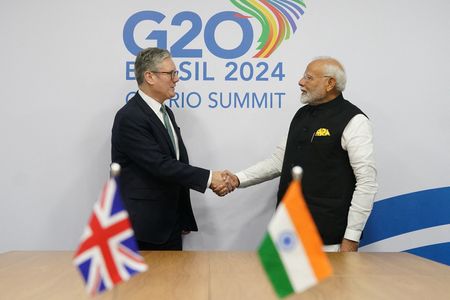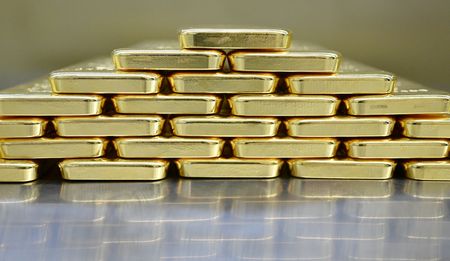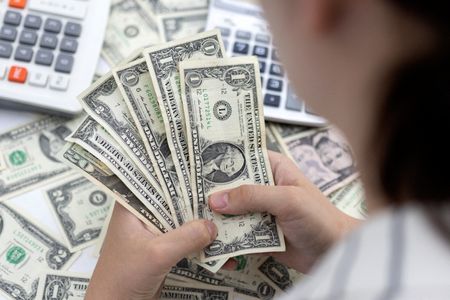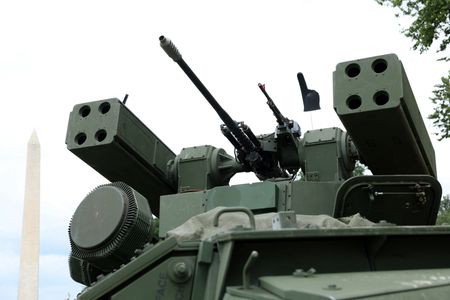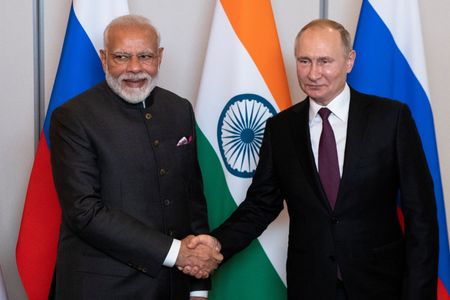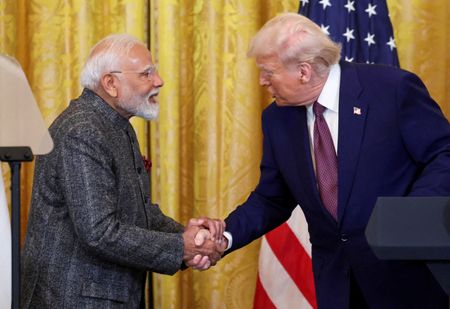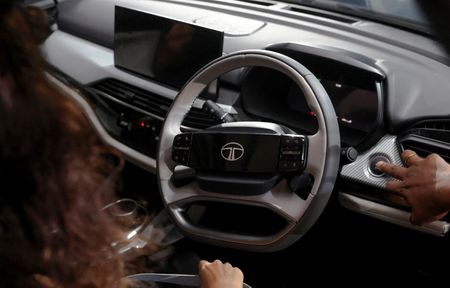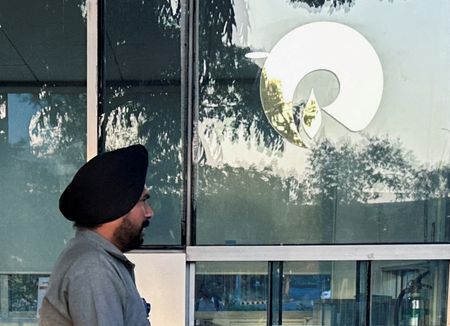LONDON (Reuters) -Britain and India clinched a long-coveted free trade pact on Tuesday after tariff turmoil sparked by U.S. President Donald Trump forced the two sides to hasten efforts to increase their trade in whisky, cars and food.
Below are some of the main points from the agreement:
KEY FIGURES
The agreement between India and Britain is expected to boost bilateral trade between the world’s fifth and sixth largest economies by 25.5 billion pounds ($34.13 billion) a year from 2040, Britain said.
Trade between the two nations totalled 42.6 billion pounds in 2024. India was Britain’s 11th largest trading partner.
Britain said the deal was the “biggest and most economically significant” bilateral trade agreement it had signed since leaving the European Union in 2020.
TARIFF CUTS FOR UK EXPORTERS
India, which has some of the world’s highest tariffs on imports, will slash levies on 90% of British products sold in the country, from whisky and medical devices to machinery and lamb, with 85% of those becoming tariff-free within a decade.
Whisky and gin tariffs will be halved from 150% to 75%, before falling to 40% by the 10th year of the deal, benefiting Britain’s Scotch whisky industry and making the beverage cheaper in the world’s largest whisky market.
India will also cut automotive tariffs to 10% from over 100% currently.
Other British goods which will face lower tariffs include cosmetics, aerospace, lamb, medical devices, salmon, electrical machinery, soft drinks, chocolate and biscuits.
Based on 2022 data, India’s tariff cuts will amount to over 400 million pounds, which are expected to more than double after 10 years.
TARIFFS CUTS FOR INDIAN EXPORTERS
Britain has also agreed to reduce its own tariffs on some products, which were relatively lower than India’s, leaving 99% of Indian exports to Britain facing zero duties.
Britain will remove a tariff on textile imports from India, benefiting India’s large apparel industry, which employs millions of workers.
The deal will open up export opportunities for Indian sectors such as marine products, leather, sports goods, toys, gems and jewellery, engineering goods and auto parts, India said.
SOCIAL SECURITY
The deal also contains a so-called double contribution convention, which will exempt temporary Indian workers in Britain and their employers from making social security contributions in Britain for three years.
The social security deal was hailed by India as a “huge win” but lambasted by Britain’s main opposition Conservatives as a giveaway. It was one of three deals which were being negotiated in addition to agreements on trade and investment.
PROCUREMENT
The deal will give UK businesses access to India’s procurement market, which covers goods, services and construction, potentially benefiting Britain’s transport, healthcare and energy sectors.
British businesses will also get exclusive treatment in some cases under New Delhi’s “Make in India” policy, which gives preferential treatment for government procurement to companies that manufacture in India.
UK CARBON TAX
There was no mention in the deal of Britain’s Carbon Border Adjustment Mechanism (CBAM), under which it will levy higher taxes on imports from countries with less strict climate policies.
India had sought an exemption from CBAM as part of the trade talks, with its trade minister saying just ahead of the announcement of the deal that India would retaliate if Britain imposed carbon taxes on it in the future.
The CBAM remains an “elephant in the room” that could negate the benefit of the free trade agreement for Indian companies, said Ajay Srivastava, founder of New Delhi-based think tank Global Trade Research Initiative.
($1 = 0.7472 pounds)
(Reporting by Sachin Ravikumar, Alistair Smout in London and Shivangi Acharya in New Delhi; editing by William James, Sharon Singleton and Gareth Jones)

